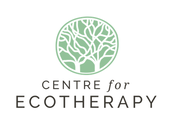Your team’s wellbeing is our priority so we have made changes to the way we operate to offer you a safe space based on respect and care for each other.
We carry out a thorough risk assessment and take all reasonable steps to mitigate the risk of transmission in line with COVID-19 secure guidance, to ensure that appropriate social distancing and hygiene is maintained.
Before arriving onsite, we may ask you to complete a Covid-19 screening questionnaire and sign our waiver.
The main hazards
Getting or spreading coronavirus:
- by not washing hands or not adequately washing hands
- in high traffic and communal areas such as the coffee/tea and food areas
- by not cleaning surfaces, equipment and workstations
- by not social distancing
And also:
The mental health and wellbeing of participants who may be anxious when on-site.
How we control these hazards to reduce the risk of spreading the coronavirus
1. In general, the risk of contracting coronavirus in outdoor spaces is lower
- normal breezes and air currents disperse viral droplets.
- open spaces prevent the virus from building up in concentrated amounts and being inhaled.
- it is easier to social distance.
2. Apply social distancing of 1m+
We apply social distancing by:
- spacing out seats around the fire and ask people to stick to the same seat
- spacing on walks - keep people in single file or spaced/distanced if in pairs
- when standing, to ask people to stay in small groups
- provide activities that don’t require very close proximity
- maintain 1m physical distance
- allocate a space for rest breaks
- reducing the number of people each person has contact with by using pods ie ‘fixed teams or partnering’ (so each person works with only a few others).
The pinch points
- refreshments and food - we provide wipes / space out items / provide hand sanitiser and gel, hand washing / regular wiping of surfaces
- social distancing and maximum numbers in one space
- one way systems for entry and exit to spaces, toilet, fire area, food/snacks
- ask people to keep their personal belongings apart
- Toilet: Use detergent and water to clean it after every use. There is running water on site so we encourage people to wash their hands after using the toilet.
3. Personal hygiene and health
These factors apply to participants and staff:
- ask participants to bring their own water bottles
- allocate kit and equipment to individual participants so that sharing is minimised
- offer gloves to participants to use during activities and with utensils if wanted
- allow participants to wear masks if they would like to
- increasing the frequency of handwashing, hand sanitising and surface cleaning.
- Encourage hygiene and hand washing:
- Provide information on how to wash hands properly
- Provide hand sanitiser for the occasions when people can’t wash their hands
- Signage to remind people
4. Mental health and anxiety
We have regular check-ins throughout the day to ensure everyone is okay.
5. Track and trace
- if participants or team members are travelling together, to encourage people to discuss and agree how to prevent risks
- ensure everyone is aware of these Health and Safety issues when on site
- record names and phone number of everyone attending, retain for 21 days
What we will do if someone is unwell
We will have allocated an isolation point on site if anyone is not well.
Those with symptoms will be sent home and asked to request a COVID-19 test through the NHS Test and Trace service.
Our cleaning / disinfectant procedures
- frequent cleaning of high contact surfaces - such as tea/coffee makers
- keep surfaces as clear as possible
- clean all seating, kit and equipment including pens and paper before client arrival and after
- spray tools, kit and equipment with disinfectant before clients arrive
- avoid sharing of equipment
- cleaning hands
- staff wear gloves and masks when cleaning
- identify in advance what cleaning materials are to be used where
- provide enough refuse bins
Updated: 24th September 2020
NB These procedures will be updated in line with latest UK guidelines.




